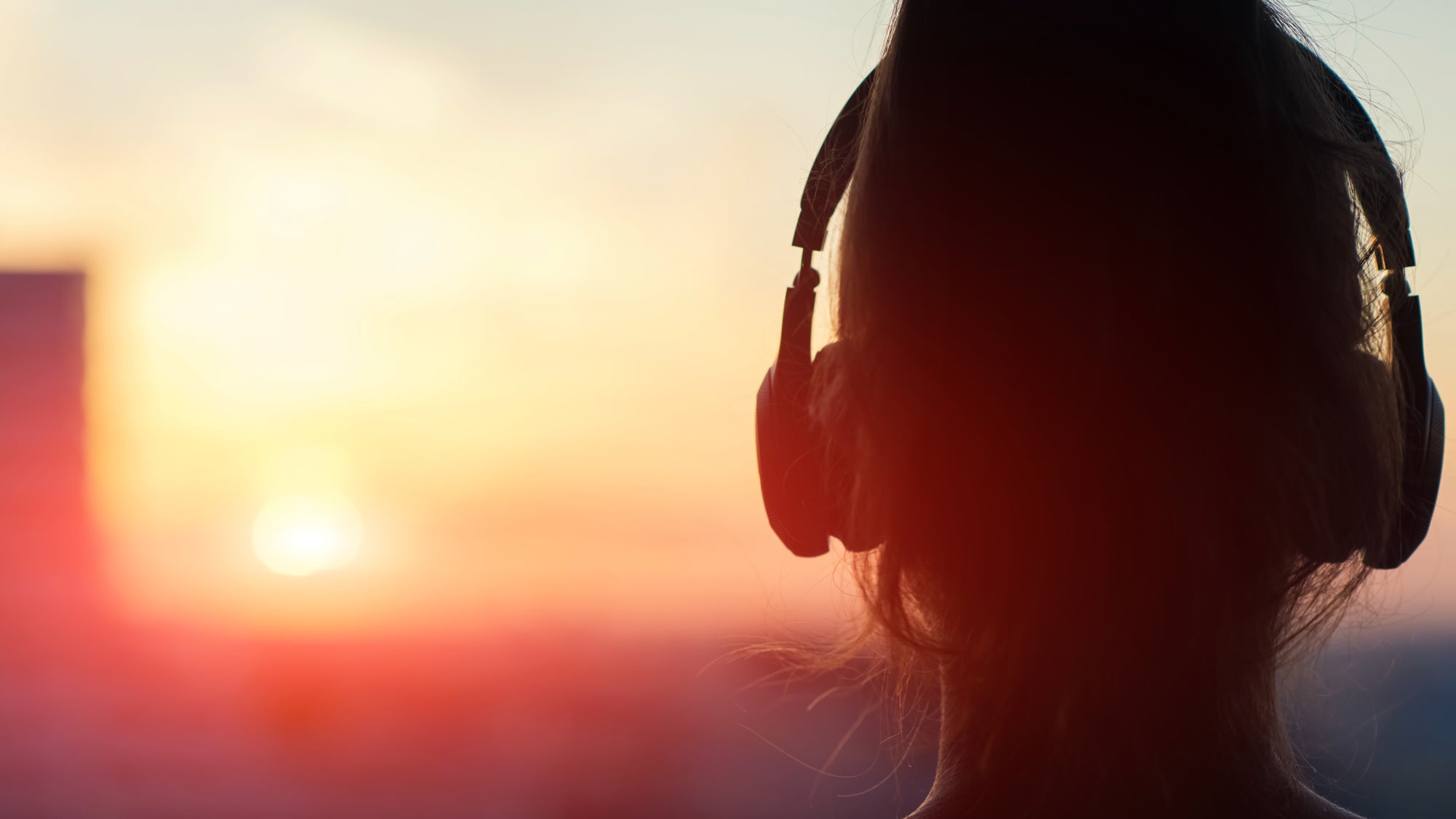How Athletes Are Using Sound Therapy to Get Race Ready

Wind chimes, wave machines, and ocean noises are just some of the many sounds that can take the body from extreme stress into a deeply tranquil state. A 2016 study found that sound meditation significantly reduced tension, anger, and fatigue, while a previous review in 2014 found that sound therapy lowered agitation and anxiety in patients recovering from surgery.
As athletes become more aware of chaotic modern noise and its stressful effect on the body, healing rituals involving calming sounds are becoming a popular way to get race ready.
Sound therapist Lily Whitehawk has used sound to treat client’s insomnia and PTSD (post-traumatic stress disorder) for decades. Harnessing that knowledge, she developed HUSO, a portable device that utilizes uniquely enhanced tones to transform the mind and body.
Whitehawk explains that the wrong sound—manmade noise pollution, for example—can harm and disrupt. This can result in a build-up of positive ions, small molecules that allow toxins to flood the body. “An athlete who is exposed to the wrong frequency for too long doesn’t get to ground their energy. The positive ions will pull energy from their body and make them feel exhausted,” Whitehawk says.
“When our frequencies are working correctly, our body systems are in harmony, giving us access to the maximum amount of energy, a better immune system, and quicker recovery,” she says.
“Sound can allow you to relax so deeply that your body has the ability to rejuvenate and get itself back into alignment. Otherwise, your body is going to have a hard time detoxing, regenerating, and just maintaining its well-being,” Whitehawk adds.
As certain frequencies help individuals mentally focus, many athletes use sound to get ready to race. Tones can also help relax the body post-event. “Sound really speeds up recovery,” Whitehawk says. “After an event, you’re exhausted but hyped up, and you need help getting back into alignment, reseting your nervous system, and releasing lactic acid.”
Seven-time Ironman champion Ben Hoffman and recent fourth-place Hawaii Ironman World Championship finisher used sound therapy to recover from a sacral stress fracture at the end of last year. “Much of my daily focus is on physical recovery, but oftentimes the mind is neglected,” Hoffman says. “The effort is minimal on my end, but the benefit is substantial as I can take a moment to establish a new ritual of slowing down in this fast-paced world.”